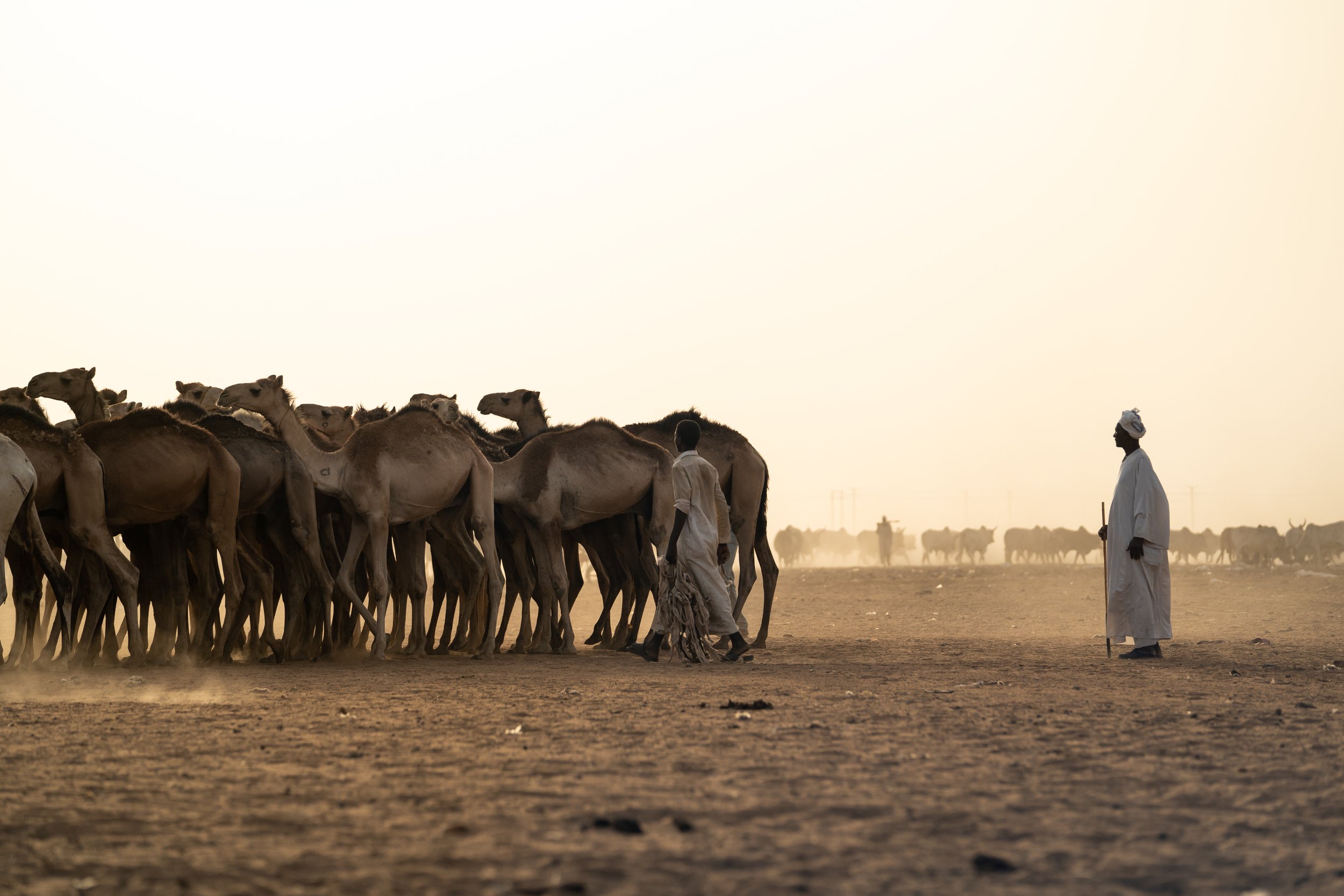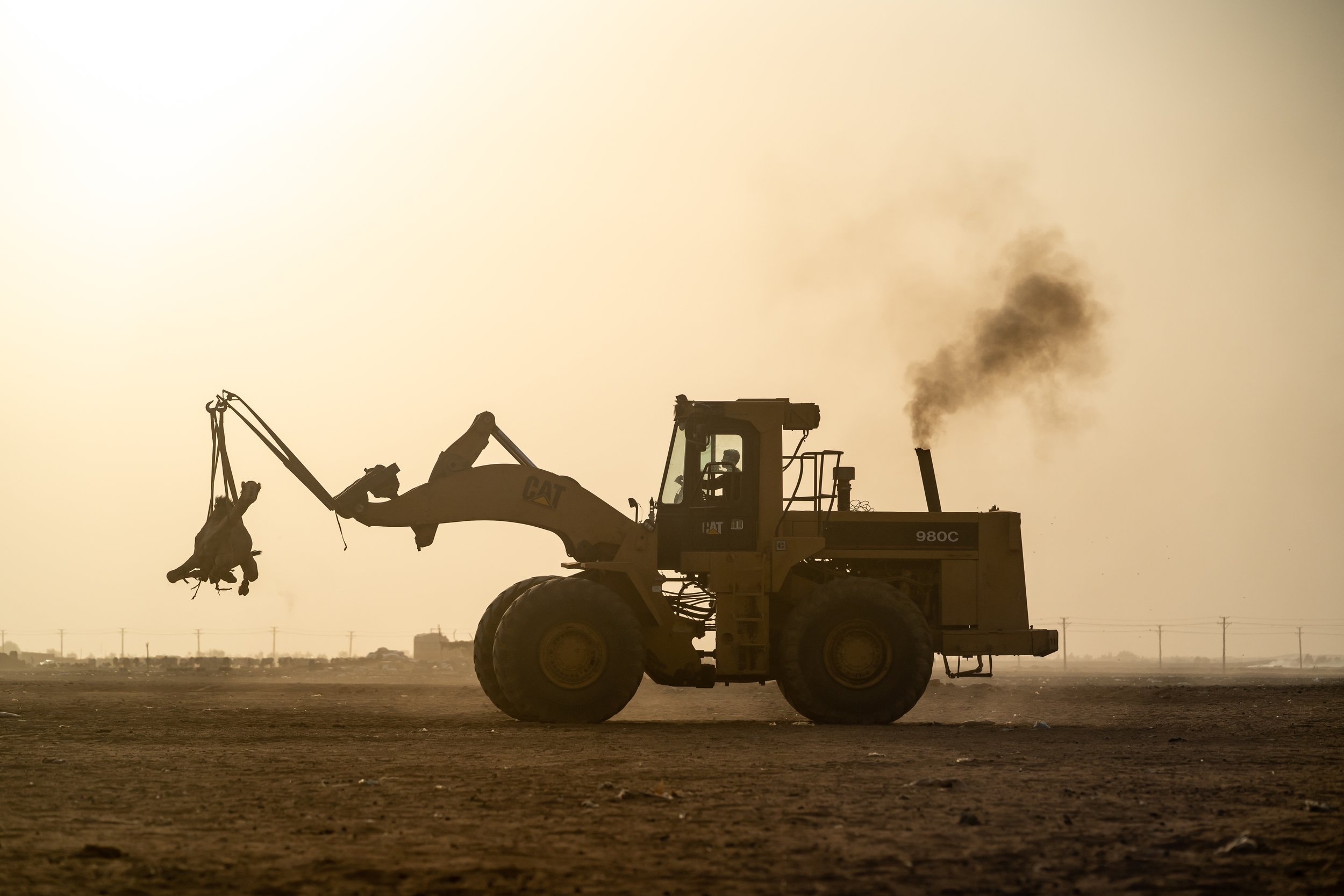KHARTOUM’S EL MOLIH CAMEL MARKET
Khartoum, Sudan. 2021.
Sudan is one of the largest exporters of camels in the world. Destined for both the glamorous racing world of the Gulf as well as the meat markets of Cairo, these animals are traded at Khartoum’s El Molih market.
At El Molih the camels are sold to the highest bidders. An entire industry exists solely for the purpose of camel trading. Forklifts and cranes move camels into awaiting trucks to make their journey across the desert to Egypt, or to the Red Sea in order to be shipped to Saudi Arabia.
Camel men work in the dusty market all day to take care of the animals, tending to the pens where they are temporarily kept before being traded. The heat is extreme— at 45 degrees in June— and yet they spend the entire day outside, largely without water, to tend to the camels. The workers set up small shade structures using palm branches to stay out of the constant sun.
The work is low-paid, arduous, and draining, but Khartoum’s camel market has continued along these same lines for decades. While modern machinery is used to aid the process, much of the camel trade is unchanged over the past many centuries, as the majority of these camels will find their way through the great deserts up the Nile to Cairo.




























